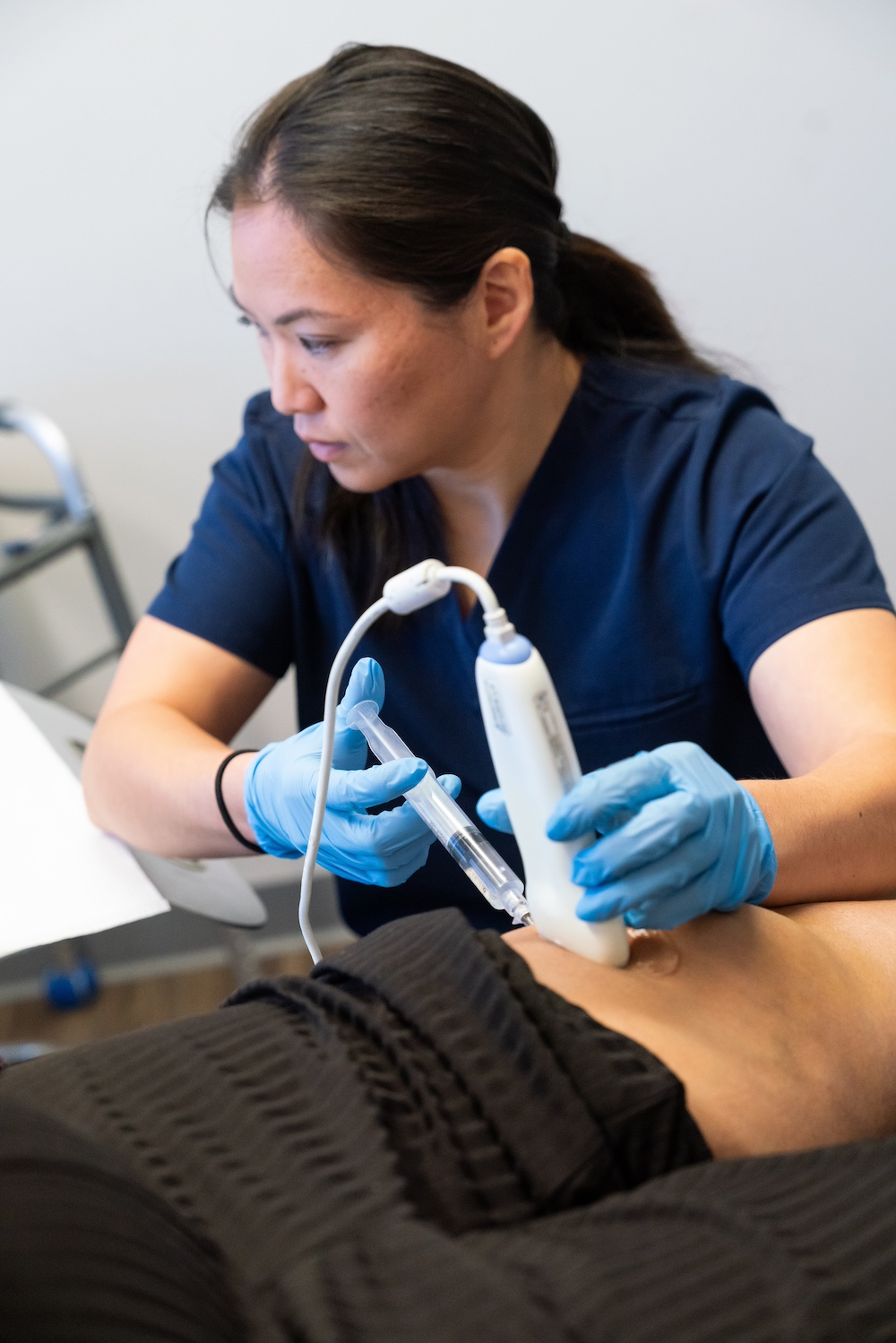
Knee Conditions
 The knee is a complex hinge joint susceptible to injury and instability especially when patients are overweight and/or very active. Knee surgery is one of the most common orthopedic surgical treatments performed in the United States and around the world. Most commonly, patients experience ligament tears, sprains, dislocation, and fractures of the knee. Minor injuries can be treated with conservative techniques such as lifestyle change in the form of improved diet and exercise to lose weight, rest, anti-inflammatory medication, and, in some cases, physical therapy.
The knee is a complex hinge joint susceptible to injury and instability especially when patients are overweight and/or very active. Knee surgery is one of the most common orthopedic surgical treatments performed in the United States and around the world. Most commonly, patients experience ligament tears, sprains, dislocation, and fractures of the knee. Minor injuries can be treated with conservative techniques such as lifestyle change in the form of improved diet and exercise to lose weight, rest, anti-inflammatory medication, and, in some cases, physical therapy.
Fractures, ACL tears, significant meniscus tears, and other more significant knee injuries may require surgical intervention to restore movement and reduce pain. Longer-term degeneration due to wear and tear or osteoarthritis may require knee replacement surgery which uses artificial implants mimicking the knee joint to restore normal function and reduce pain.
Below you will find more information on common conditions and treatments that we see and treat at our orthopedic practice.
- Anterior Cruciate Ligament (ACL) Injury & Tear
- Arthritis of the Knee
- Osteoarthritis of the Knee: Animation
- Collateral Ligament Injuries
- Meniscus Tears
- Osgood-Schlatter Disease
- Osteochondritis Dissecans
- Osteonecrosis of the Knee
- Patellofemoral Pain Syndrome
- Patellar Tendon Tear
- Patellar (Kneecap) Fractures
- Pes Anserine Bursitis
- Posterior Cruciate Ligament Injuries
- Prepatellar (Kneecap) Bursitis
- Proximal Tibia Fractures
- Quadriceps Tendon Tear
Knee Treatments
- Anterior Cruciate Ligament (ACL) Surgery
- ACL Reconstruction
- Autologous Chondrocyte Implantation
- Cartilage Preservation and Cartilage Restoration
- De Novo Cartilage Implantation
- Knee Arthroscopy
- Meniscal Transplant Surgery
- Meniscus Repair
- Osteochondral Allograft Transplantation
- Osteochondral Autologous Transplantation
- Partial Meniscectomy
- Total Knee Replacement
- Revision Total Knee Replacement
- Subchondroplasty Procedure
The information on this website is for educational purposes only. This is not meant as medical advice. Always consult with your physician for any medical concerns.


 ES
ES